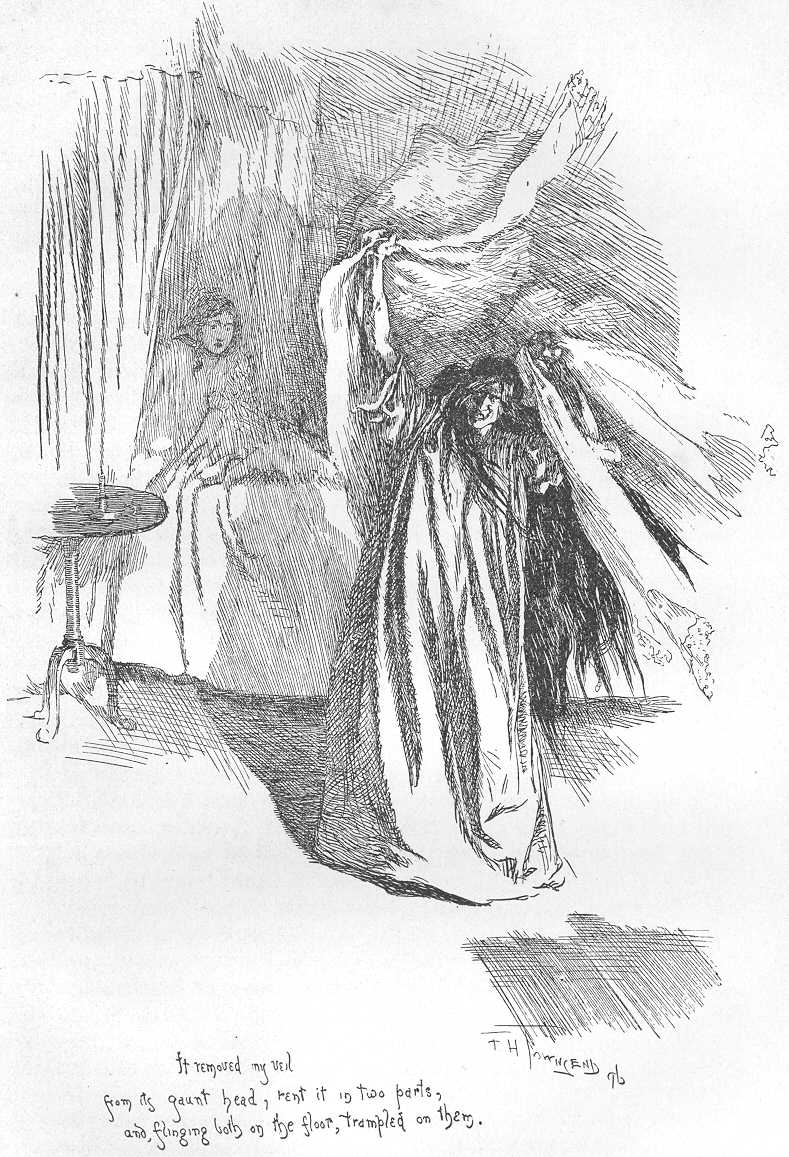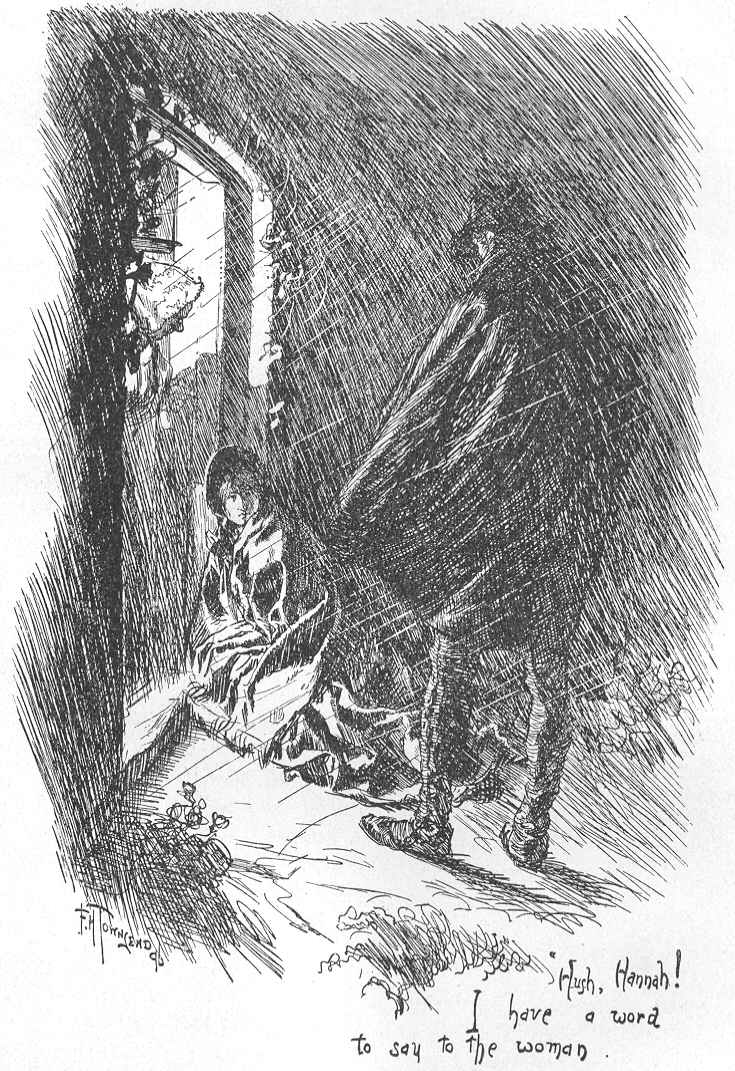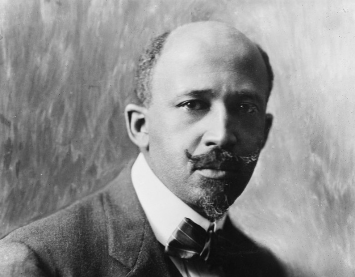To read Jane Eyre’s journey, from abused and unwanted orphan, to much-loved wife second wife of Mr Rochester, is a story of success against trials and tribulation. However, her fate is in total contrast to Bertha Mason, Mr Rochester’s first wife, whose narrative voice is silenced when she is brought to England from the then British colony of Jamaica, and confined in an attic by her husband, after suffering mental ill-health.
The husband, Edward Fairfax Rochester, is a ‘bad boy’, a younger son sent to the colonies to make his fortune, and marry a woman he barely knows, in order to gain access to her fortune: 30 thousand pounds; which suggests a biblical allusion to the 30 pieces of silver given for Jesus. Brontë guides the reader to feel for ‘poor Edward’, trapped in this loveless marriage with a wife who repeatedly tries to kill him, and to pity his inability to take Jane to wife due to his being ‘shackled’ to the first Mrs Rochester. According to Rochester ‘Bertha Mason is mad; and she came of a mad family; idiots and maniacs through three generations! Her mother, the Creole, was both a madwoman and a drunkard!’ We learn that the history of mental ill-health was kept from Edward before they married, but that she was beautiful and ‘the boast of Spanish Town’, and he thought he loved her before he married her.
Alas for Bertha. The marriage breaks down, and Edward has all the power in a patriachial society. His story is of a woman whose excesses have driven her to madness and who makes his life a living hell, but whom he cannot divorce as she is not ‘of sound mind’. Rochester chillingly asserts that ‘of course’ she had been ‘shut up’ as she had been declared ‘mad’. Hearing the story of his sufferings, Jane has every pity for her ‘hero’. However, he has quite a track record himself. There is clearly one rule for rich, white, male Edward, and quite another for Bertha Mason. Edward is a man and he has money and power. It is his narrative which Jane relates, as part of her own. But the suppresed voice needs to be heard, as Bertha’s is as much a part of the story, but this does not happen in Jane Eyre and Bertha is silenced.

Over one hundred years after Charlotte Brontë wrote Jane Eyre, the author Jean Rhys gives a voice to the suppressed first Mrs Rochester, in Wide Sargasso Sea, a feminist, post-modern, prequel to Jane Eyre. It tells the story of Antoinette Bertha Mason, although it plays with the dates, the family history and the names. We hear of her very difficult childhood, of the family’s ruin and her struggles with mental ill-health as a result. But then, in rides Edward who sweeps her off her feet. She believes he loves her and will care for her, but first he takes her name away – he doesn’t like Antoinette and calls her Bertha. Then her takes her money, and her sense of self, and her freedom, and then he sleeps with her maid, knowing she can hear as they are in the next bedroom, and it is at this point that she finally breaks down. Taken to England, confined and chained like a slave, it seems understandable that she feels such anger towards Edward that she lashes out and seeks to destroy what Edward has, as he has destroyed what she had. She may not be able to communicate verbally any more, but she can express her rage at being sold, and silenced, in the colonies where suppression of the ethnic other is the norm, and brought to England against her will and imprisoned.

The colonies are places where younger sons are sent, where fortunes are made and people are enslaved by the British Empire and have the religion of the Empire forced upon them. Just as Rochester gains a fortune in the colonies, so does Jane, having been left a fortune by her uncle in Madeira. But it is her cousin, St. John Rivers, who demonstrates the zeal of the colonising religious zealot. The forces of patriachry and racism are embodied in this handsome cousin who wishes her to wed him, and go with him to the colonies, despite his being in love with someone else. St. John Rivers could marry the rich beauty who loves him too, and they could have used her fortune to great good without leaving for the colonies. But that is not enough for Rivers. Why settle for good works at home, when you can go abroad as a missionary and impose your religion and culture on people unable to defend themselves? Before he leaves for the colonies, to subjugate as many indigenous people as he can, he exhorts Jane to join him, and claims her ‘for God’. But Jane sees through his religious zeal, his partriachial assumptions and his need to dominate those of other races and does not hesistate to reject his offer of marriage: ‘I scorn the counterfeit sentiment you offer: yes, St. John, and I scorn you when you offer it.’
In the closing chapter, we see that Rivers has achieved his goal and is busy converting everyone in sight, convinced that he is a great force for good, and for which he has paid with his health, and will soon pay with his life. But Rivers, has of course, not been a force for good. He has been a part of the destruction of the culture and way of life for those who have been colonised, their stories silenced, as surely as Rochester silenced Bertha.
The marriage of Jane and Edward may be a triumph for Jane, and redemption for Edward, but Bertha is soon forgotten, except as a piece of juicy ‘gossip about the mysterious lunatic kept there under watch and ward’, who brought down the house of Rochester, who was an ethnic other, suffered mental ill-health and was female, in a society that treated her mercilessy. It is little wonder that Antoinette rued the day that Edward met Bertha.





Rate and Review
Rate this article
Review this article
Log into OpenLearn to leave reviews and join in the conversation.
Article reviews